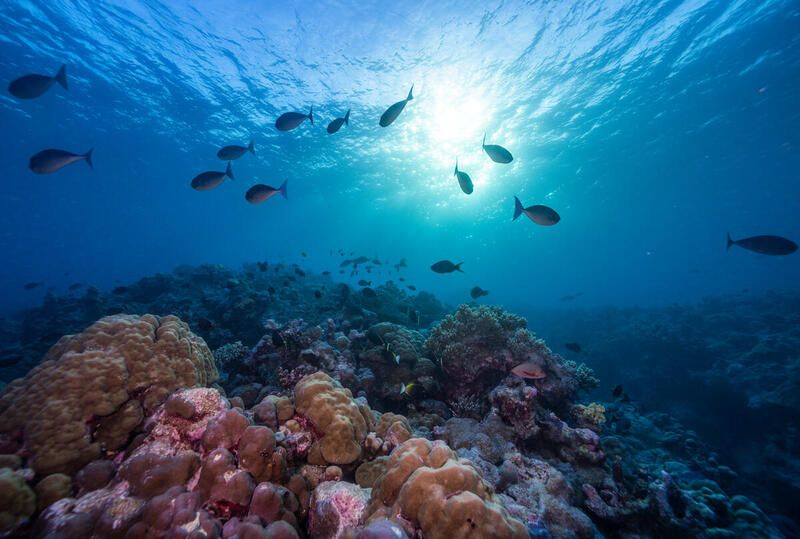
By Deborah Olaoluwa
Governments at New York Climate Week Commit to a Tidal Wave of Climate Action as Ocean Continues to Absorb 90% of the Excess Heat From Global Warming
Today, at a ministerial-level New York City Climate Week event, Chile and the UK committed to the Blue NDC Challenge, underscoring both the economic and environmental value of protecting the ocean. The initiative urges coastal nations to integrate ocean-focused actions into their climate plans – nationally determined contributions (NDCs) – ahead of COP30. The NDCs are the cornerstone of global climate action under the UN Framework Convention on Climate Change (UNFCCC), serving as investment plans and the primary tool for limiting global warming. With these new members, the Blue NDC Challenge now counts 10 countries, joining leaders including Brazil, France, Australia, Fiji, Kenya, Mexico, Palau, and the Republic of Seychelles.
Brazil and France launched the initiative alongside these inaugural members at the United Nations Ocean Conference in Nice, France this past June; Brazil will be hosting COP30 in November. The initiative is supported by Ocean Conservancy, the Ocean & Climate Platform, and the World Resources Institute.
Studies have shown that ocean-based climate solutions can deliver up to 35% of the emissions reductions needed to keep global temperatures from spiking. By signing on to the Blue NDC Challenge, countries commit to integrating the ocean into their national climate strategies or implementation plans, examples of which may include:
- Sustainably managing, conserving, and restoring coastal and marine ecosystems;
- Phasing out offshore oil and gas production;
- Expanding clean ocean energy such as offshore wind, wave, and tidal power;
- Cutting emissions and strengthening resilience in maritime sectors, including the shipping and seafood industries, and
- Supporting sustainable, climate-resilient fisheries and aquaculture.
The Blue NDC Challenge is part of an overall effort spearheaded by Brazil to ensure the ocean plays a central role in the upcoming climate talks in Belem, Brazil. In addition to absorbing excess heat, the ocean has absorbed close to 30% of the annual CO2 emissions from human activities since the beginning of the Industrial Revolution.
Governments that join the Challenge will receive support from a wide range of partners and initiatives, including the NDC Partnership hosted by World Resources Institute, as well as the Ocean Breakthroughs, which is co-led by the Marrakech Partnership for Global Climate Action and the UN High-Level Climate Champions. Together, they aim to boost investment and action in ocean-based solutions to help achieve a net-zero, resilient, and nature-positive future by 2050. The Blue NDC Challenge effort is funded through the Ocean Resilience and Climate Alliance (ORCA) and has been endorsed by WWF-Brazil.
“The ocean is our unsung resource hero, and it’s encouraging to see so many countries recognise its vast, untapped potential to help stabilise our climate. The ocean offers a trove of solutions– from offshore wind to green shipping to restoring ecosystems–that countries can implement today to reach their national climate targets,” said Janis Searles Jones, CEO of Ocean Conservancy. “Now is the time for more countries to join this historic initiative and recognise that the ocean is a powerful and essential ally in our efforts to tackle the climate crisis.”
“On the road to Belém, the Blue NDC Challenge ensures the ocean is more than a backdrop—it is a driver of climate action. This is how we move from ambition to implementation and make COP30 the turning point the Planet truly needs,” said Loreley Picourt, Executive Director of the Ocean & Climate Platform.
“The ocean is the world’s greatest ally in the fight against climate change, but only if we put it at the heart of climate action. The Blue NDC Challenge is gathering momentum because countries see that the ocean is not a side issue, but central to meeting climate goals and delivering benefits for people and nature,” said Tom Pickerell, Global Director of the Ocean Program at the World Resources Institute and Head of the Secretariat for the High Level Panel for a Sustainable Ocean Economy. “At New York City Climate Week, we want to see more nations to step forward and commit to ocean-based action, turning the ambition we saw at UNOC into implementation ahead of COP30.”












